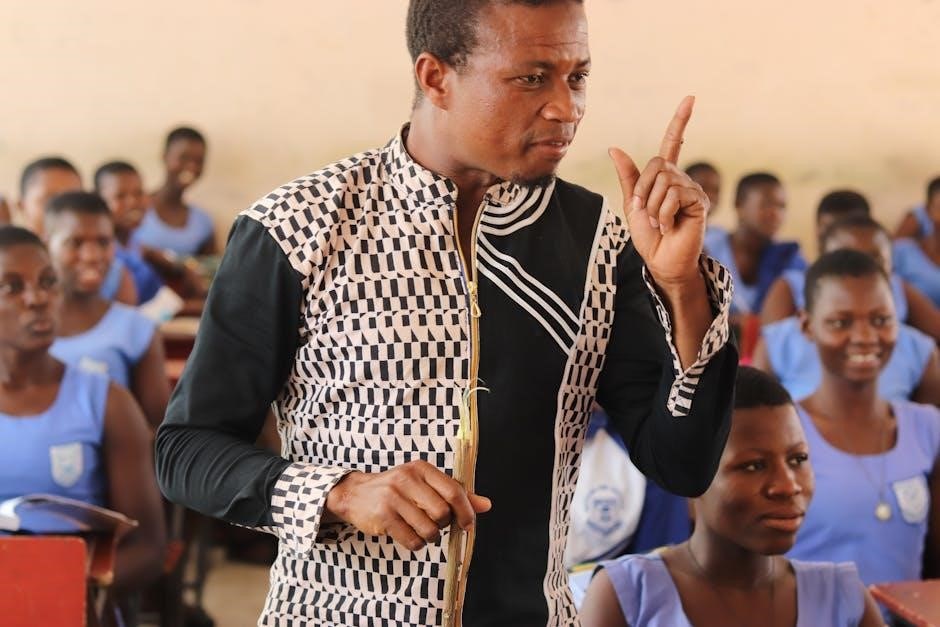RCIA Curriculum PDF: A Comprehensive Guide
The Rite of Christian Initiation of Adults, or RCIA, welcomes inquirers to the Catholic faith. A comprehensive RCIA curriculum, often available as a PDF, guides participants through Church teachings. These curricula are rooted in the Catechism, Scripture, and the Saints.
Understanding the RCIA Program
The RCIA, or Rite of Christian Initiation of Adults, is a journey of faith. It is designed for adults who are seeking to become members of the Catholic Church. The program provides a structured process of learning, reflection, and spiritual growth. It’s for those who are unbaptized, baptized in another Christian tradition, or baptized Catholics seeking Confirmation. The RCIA aims to introduce participants to the Church’s teachings and beliefs. The goal is to inspire a living, conscious, and active faith. The process helps inquirers receive the Good News. Participants experience Christ working in their lives and open themselves to the Holy Spirit.
The implementation of the RCIA in a parish requires careful study of the Rite and its stages. The Precatechumenate period is essential, allowing sufficient time for inquiry. Ideally, the Parish Priest meets with each inquirer. The program helps individuals transition into the Catholic faith. Some RCIA programs use resources like the Symbolon course. The “My Catholic Life! Series” also offers a complete summary of the Catechism.
The Purpose of RCIA
The Rite of Christian Initiation of Adults (RCIA) serves a vital purpose within the Catholic Church. It is designed to welcome and prepare adults who seek to become full members. The RCIA is a process of conversion, faith formation, and integration into the Catholic community. The program provides a structured and supportive environment for inquirers to learn about the teachings, traditions, and practices of the Church. Participants explore their faith, deepen their relationship with God, and discern their call to discipleship.

The purpose of RCIA extends beyond mere intellectual understanding. It aims to foster a living and active faith that transforms lives. Through prayer, study, and community engagement, participants encounter Christ and the Holy Spirit. The goal is to help them embrace the Catholic faith fully and joyfully. The RCIA guides individuals through various stages, including inquiry, catechumenate, purification, and mystagogy. These stages help them grow in faith and prepare for the sacraments of initiation: Baptism, Confirmation, and Eucharist.
Key Components of an RCIA Curriculum

A well-structured RCIA curriculum encompasses several key components to ensure a comprehensive and transformative experience for participants. Foundational to any RCIA program is a thorough exploration of Catholic doctrine. This includes teachings on the Trinity, the Church, the sacraments, and moral living. The curriculum should incorporate Scripture study, enabling participants to engage with the Word of God. It will help them understand its relevance to their lives. Prayer and spirituality are integral components, fostering a deeper relationship with God through various forms of prayer and reflection.
Liturgical formation is crucial, familiarizing participants with the Mass. It also includes the liturgical seasons, and the meaning behind rituals and symbols. Emphasis should be given to community building, creating a supportive network. It helps participants to share their faith journeys. Moral formation guides participants in applying Catholic moral principles to their daily lives. It also assists them to make ethical decisions. Finally, catechesis on the sacraments of initiation prepares individuals to receive Baptism, Confirmation, and Eucharist.
Utilizing the Catechism, Scripture, and Saints
An effective RCIA curriculum draws heavily upon the Catechism of the Catholic Church, Sacred Scripture, and the lives of the Saints. The Catechism serves as a reliable guide to Church teachings, providing clear explanations of doctrine and moral principles. Integrating Scripture into the RCIA process allows participants to encounter God’s Word. It helps them to discover its relevance for their lives. Stories from the Old and New Testaments offer insights into faith, salvation, and God’s covenant with humanity.
The lives of the Saints provide inspiring examples of holiness, virtue, and dedication to Christ. Exploring their stories allows participants to connect with the rich history of the Church. It shows them how faith can be lived out in diverse ways. By studying the Saints, RCIA candidates learn about different spiritual paths. They also find encouragement to persevere in their own faith journeys. The Catechism, Scripture, and Saints form a solid foundation. These elements provide guidance for those entering the Catholic Church.
Free RCIA Resources and Curriculum Options
Many parishes seek cost-effective ways to implement their RCIA programs. Fortunately, several free resources and curriculum options are available. “My Catholic Life!” series is a great resource, providing a comprehensive overview of the Catholic faith. It is available in electronic form. This series summarizes the Catechism of the Catholic Church. It presents the faith in an understandable way.
Some organizations and dioceses offer downloadable RCIA materials, including lesson plans, handouts, and presentations. These resources can be adapted to suit the specific needs of a parish. However, it’s crucial to ensure that any free materials align with official Church teachings. Parishes should be cautious of resources promoting theological inaccuracies. Utilizing free resources can significantly reduce the financial burden of RCIA. It allows parishes to focus resources on other aspects of ministry. Remember to always verify the authenticity of any resource before implementing it into the RCIA program.
My Catholic Life! Series as an RCIA Resource

The “My Catholic Life!” Series offers significant value as an RCIA resource, particularly for those converting to Catholicism. This comprehensive 24-week study provides a thorough exploration of the Catholic faith. Its electronic format makes it freely accessible, summarizing the Catechism of the Catholic Church in an easy-to-read manner. The series presents the faith in a personal and understandable way, suitable for diverse learners within the RCIA program.
Participants may follow along and read the lessons in a variety of ways. All sections of this series may also be copied and printed for use at any Catholic church or institution throughout the world. It may be used as the Small Group Study format for group discussion. It covers topics such as the Trinity, Sacraments, and Moral Life. By incorporating this series, RCIA programs gain a reliable and adaptable tool. This tool ensures that candidates receive a solid foundation in Catholic doctrine and practice.
Adapting the Curriculum to Parish Needs
Adapting the RCIA curriculum to meet specific parish needs is paramount for effective formation. Each parish has a unique community with varying levels of understanding and diverse backgrounds. Therefore, a one-size-fits-all approach is often inadequate. Begin by assessing the needs and learning styles of the potential candidates. Consider factors such as their prior religious education, cultural backgrounds, and learning preferences. This assessment will inform the selection of appropriate resources and teaching methods.
Flexibility is key. Some parishes may benefit from a more traditional approach, while others require a more contemporary and engaging style. The curriculum can be supplemented with local parish stories, community service projects, and guest speakers. This integration connects the RCIA journey to the lived experiences of the parish community. Furthermore, tailoring the curriculum ensures that it resonates with the candidates. Ultimately, it fosters a deeper sense of belonging and engagement within the Church.
The Importance of the Precatechumenate Period
The Precatechumenate period is a crucial initial phase in the RCIA journey. It serves as a time of inquiry and discernment for those considering entering the Catholic Church. This period allows individuals to explore their initial questions, doubts, and motivations without formal commitment. It’s a period of evangelization where the focus is on introducing inquirers to the Good News of Jesus Christ. The implementation of RCIA is to be preceded by a study of the Rite and its periods.
The Precatechumenate provides a welcoming and non-judgmental environment where inquirers can share their stories and experiences. It also allows the RCIA team to build relationships with the inquirers, understand their needs, and assess their readiness for deeper catechesis. Sufficient time should be allowed for this period. Meeting with each inquirer is helpful during this stage. Ultimately, the Precatechumenate lays a solid foundation for the subsequent stages of the RCIA process. It ensures that candidates enter the catechumenate with a genuine desire to learn more about the Catholic faith.

RCIA Handbook Examples and Templates
RCIA handbooks are essential resources for parishes implementing the Rite of Christian Initiation of Adults. These handbooks provide guidance, structure, and practical information for both RCIA team members and participants. Examples of RCIA handbooks often include detailed schedules, outlines of topics covered, and explanations of the various rites and ceremonies involved in the process. Templates are often used as a starting point. They can also be customized. The handbooks often contain prayers, scripture readings, and reflections to enrich the spiritual journey of the candidates.
Many RCIA handbooks also offer practical tips for addressing common questions and concerns that inquirers may have. Some handbooks are available online, often in PDF format, providing easy access to valuable information. These resources often reflect a parish’s unique approach to RCIA. Some are also designed with specific needs in mind. They also reinforce the importance of community, prayer, and ongoing formation in the RCIA process. The use of handbooks enhances the effectiveness and meaningfulness of the RCIA experience.
Addressing Common Challenges in RCIA Programs
RCIA programs, while transformative, often face challenges that require thoughtful solutions. One common challenge is engaging participants with diverse backgrounds and levels of faith. Tailoring the curriculum to meet individual needs can be addressed by incorporating varied teaching methods and creating opportunities for personal sharing.
Another challenge is maintaining consistent attendance and commitment from participants. Clear communication, a welcoming environment, and a sense of community can help foster engagement. Addressing scheduling conflicts and providing childcare options may improve attendance. Keeping the content relevant to the participants’ lives can help sustain interest.
Dealing with sensitive or controversial topics requires careful planning and a compassionate approach. Creating a safe space for open discussion and addressing concerns with honesty and clarity can help navigate these challenges. Utilizing resources from the Catechism and Church teachings can provide a solid foundation for addressing difficult questions. By proactively addressing these challenges, RCIA programs can become more effective.
